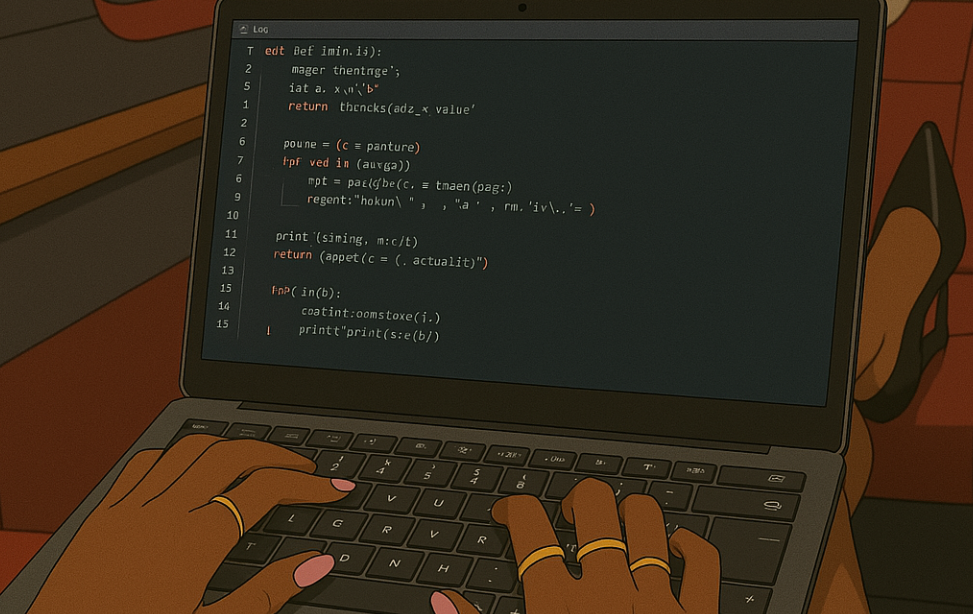1. To Know When to Stop
Let’s say you’re looping through a list of your exes to send each one a personalized “thank u, next” message. You need to know how many there are.
exes = ["Ryan", "Luca", "That one DJ", "???"]
print("I have", len(exes), "mistakes to acknowledge.")
Output:
I have 4 mistakes to acknowledge.
2. To Make Decisions Based on Size
If someone sends you a text longer than 100 characters, they’re definitely overthinking it. Let’s flag it.
message = "i just think it's funny how..."
if len(message) > 100:
print("Red flag. Way too long. Emotional essay detected.")
else:
print("Short but... proceed with caution.")
3. To Avoid Errors When Looping
You don’t wanna be that girl who loops one too far and breaks the entire program.
for i in range(len(exes)):
print(f"{i+1}. Dear {exes[i]}, no hard feelings but... lol.")
This way, Python knows exactly when to stop.
4. To Validate User Input
Make sure someone isn’t giving you fake data.
username = input("Pick a username: ")
if len(username) < 5:
print("Too short. Try again, rookie.")
5. To Check if Something’s Empty
Sometimes, a list or a string is just… vibes. But we need to know if it’s actually got stuff in it.
crushes = []
if len(crushes) == 0:
print("No targets acquired. Focus on self-care.")
So yeah. len() is how Python spills the tea on how much stuff you’re dealing with.
Strings. Lists. Tuples. All of it.
It’s basically the “How bad is it?” function.
🔁 6. Controlling Loop Logic with Unknown Data Sizes
Imagine you’re scraping tweets, or reading a random text file full of love letters (or cease & desist warnings). You don’t know how long the list will be, but you still need to go through all of it safely.
messages = get_tweets_from_your_crush() # might return 7, might return 70
for i in range(len(messages)):
print(messages[i])
len() = the polite way to say: “I’ll stop when the list ends. I’m not chaotic like you.”
🛑 7. Preventing Index Errors (Aka, That One Mistake You Swear You’ll Never Make Again)
Trying to access index 4 in a list with only 3 items? Python will slap you. Unless you check first:
if len(your_list) > 4:
print(your_list[4]) # Only do this if it *exists*
It’s the digital version of: “Text your friends after you’ve re-read the message 3 times.”
🎯 8. Trimming Inputs to Required Lengths
Say you’re building a signup form. Nobody needs a 38-character username.
Python helps keep things ✨ tight ✨.
if len(username) > 12:
print("Pick something shorter. You're not that mysterious.")
🎭 9. Comparing Two Things for “Fairness”
Are two lists equal in length? That might actually matter.
names = ["Lana", "Dina", "Mina"]
scores = [100, 95, 82]
if len(names) == len(scores):
print("Ready to match names to scores.")
else:
print("Someone got lost. Drama incoming.")
🧩 10. Slicing the Last X Items From a List
Want to get just the last 3 texts from your bestie? Use len() to slice like a pro.
last_3 = messages[len(messages)-3:]
print(last_3)
Works even if the list is 5 or 50 items long — dynamic queen behavior.
📦 11. Validating JSON / API Responses
You’re building an app and pulling stuff from an API. You need to check if that response has enough data before you go poking it.
data = api_call()
if "items" in data and len(data["items"]) > 0:
print("We've got results, babe.")
else:
print("Empty handed. Try again later.")
🕵️♀️ 12. Detecting Oversized Files or Messages
Want to cut off submissions over 1,000 characters? Like a mini content gatekeeper?
if len(user_bio) > 1000:
print("That’s a full memoir. Calm down.")
🧼 13. Cleaning Up Lists by Length
Imagine filtering out one-word answers from a convo log:
real_responses = [msg for msg in messages if len(msg) > 3]
This keeps only the messages that have actual substance.
Like the opposite of your 3AM texts.
Bottom line? len() is how you read the room —be it a string, a list, a file, or a full-on data dump from someone’s emotional baggage.
Still with me?
Wanna build a length-based decision system?
Like:
“If this guy’s message is < 20 characters, auto-ignore him.”
Or
“If her playlist has more than 30 songs, she’s def in her feels.”
Say the word. Let’s code some judgment.


